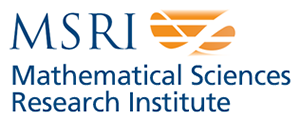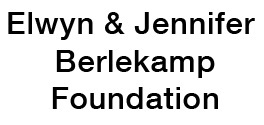Math & Cultural
| Parent Program: | -- |
|---|---|
| Location: | SLMath: Eisenbud Auditorium, Baker Board Room, Commons Room, Atrium |
Sunday, October 15, 2017 from 1:00-5:00 p.m.
Mathematical Sciences Research Institute (MSRI)
17 Gauss Way, Berkeley, CA 94720 (Directions)
Come celebrate math with puzzles, games, magic, stories, and more! Kids ages 8 and up, and grown-ups who are kids at heart, will enjoy this afternoon filled with hands-on math activities and presentations.
The event honors the life and work of Martin Gardner, former Scientific American columnist who inspired a generation of mathematicians and recreational math enthusiasts. In the spirit of Martin Gardner's love of Alice in Wonderland and with Halloween around the corner, come "down the rabbit hole" and explore with us!
This event is free and open to the public! Questions? Contact Jennifer Murawski at jmurawski@msri.org.
Advance registration is requested, but not required. Click here to sign up online.
Download an event poster (PDF, 8.5"x11") to share!



2017 Event Schedule
All events take place inside MSRI's building at 17 Gauss Way, Berkeley (above Lawrence Hall of Science).
HANDS-ON ACTIVITIES (1st and 2nd floors)
1:00 - 4:00 p.m. Hands-On Math Activities and Displays
-
California Mathematics Festival: Join us for a hands-on problem-solving fair, California Mathematics Festival style! Everybody in your family from grandma to little brother can experience a dozen exciting math activities. You don’t have to watch; you’ll find problems you can do! Come have fun doing math with your whole family.
-
National Museum of Mathematics (MoMath) Exhibits: Enjoy math exhibits from the National Museum of Mathematics in New York City
-
Elwyn and Jennifer Berlekamp Foundation: Try to trap your opponent in the Game of Amazons; learn the trick of winning at perennial favorite Dots and Boxes; and get caught in a loop with Moebius Paper Crafts
-
Stan Isaacs (College of San Mateo): Math and Logic Puzzles
-
Dr. Carlo Sequin (UC Berkeley): The Topology of Surfaces
-
Cubes and Things (cubesandthings.net): Cubes and Things Presents a Polyhedra Party! Color and cut your way to creating your own 3D math objects with local artist Stacy Speyer of Cubes and Things.
-
MSRI: What kind of fun can you have with 27 cardboard boxes? You can build a Giant SOMA Cube Puzzle, of course! This Tetris-like puzzle has challenged math lovers of all ages for almost 100 years.
-
Dr. Clifford Stoll: A frequent guest on the YouTube channel Numberphile, Dr. Clifford Stoll is recognizable to a new generation as the man with 1,000 Klein bottles under his house. Stoll has worn many hats in life—astronomer, teacher, author, maker, TED speaker, Klein bottle salesman—but one thing he's never been is boring.
STAGE SHOWS IN SIMONS AUDITORIUM (1st floor)
These short presentations (15-25 minutes each) will knock your socks off!
1:00-1:25 p.m. - "2-Manifold Sculptures and Surface Classification" (Interactive Presentation)
Dr. Carlo Sequin (UC Berkeley)
1:30-1:55 p.m. - "What IS It about Alice? Lewis Carroll in Popular Culture"
Mark Burstein (Lewis Carroll Society of North America)
Exactly what is it that makes Alice's Adventures in Wonderland and Through the Looking-Glass the most quoted novels ever written, with citations on the scale of Shakespeare and the Bible? The Alice books been translated into over two hundred languages, illustrated by hundreds of artists, and have been adapted into plays, musicals, movies, videogames, and merchandise. What IS it about Alice that makes these novels so celebrated, studied, and influential? Martin Gardner, whom this event honors, loved the work of Lewis Carroll, and was the editor of The Annotated Alice (1960), his best-selling work. We'll explore the cultural fascination with Carroll's work in this highly illustrated talk by Mark Burstein, a lifelong, second-generation collector, president emeritus of the Lewis Carroll Society of North America, and editor or introducer of, or contributor to fourteen books about Carroll, including The Annotated Alice: 150th Anniversary Deluxe Edition (W. W. Norton, 2015) and Alice’s Adventures in Wonderland: 150th Anniversary Edition Illustrated by Salvador Dalí (Princeton University Press, 2015).
2:00-2:25 p.m. - "64 = 65? Lewis Carroll's Puzzles and Lewis Carroll's Math" (Interactive Presentation)
Stuart Moskowitz (Humboldt State University)
I always look for puzzles that help my students learn their math. Recently I learned that Rev. Charles Dodgson (mathematics lecturer at Oxford University, a.k.a. Lewis Carroll, author of Alice in Wonderland), studied one of my favorite Vanishing Area Puzzles (64=65), but had never published his results. I wanted to learn more. I was pointed towards the Parrish Collection at Princeton. There I found not only the unpublished manuscripts I was looking for, but other puzzles and letters and math lecture notes and so much more. There I found the greatest puzzle of all: Who is Lewis Carroll? This presentation explores the puzzles, the mathematics, and the man. First we’ll puzzle over Dodgson’s interpretation of how an 8 by 8 square can be cut up and rearranged to make a 5 by 13 rectangle (with an increase in the total area!). We’ll explore several other original puzzles by Dodgson as well as how he infused mathematics and, more interestingly, number sense, into the letters he wrote to children. The presentation is intended for 6th graders to 60th graders.
Dr. James Tanton (The Global Math Project and the Mathematical Association of America)
Mark Mitton (Magician) and Dr. James Gardner (University of Oklahoma)
4:00 - 5:00 p.m. - Stage Show featuring Mark Mitton, Magician
Mark Mitton is a professional magician who is fascinated by using magic to better understand how we see the world. In addition to performing at private and corporate events all over the world, and creating magic for film, television, the Broadway stage, and Cirque du Soleil, Mitton tirelessly explores the theme of ‘Misdirection’ from an interdisciplinary standpoint. He regularly presents on ‘Perception’ at universities and conferences in North America and Europe, including the Association for the Scientific Study of Consciousness, and has lectured with the late Nobel laureate Dr. Gerald Edelman of The Neurosciences Institute. Mitton has performed at festivals in Europe and Asia; at the Olympic Games; in war-torn Liberia; in hospital wards around New York City; and in a Mexican orphanage. His magical hands are featured in a They Might Be Giants video.
+++
Parking & Transportation
To reach MSRI by public transit, take the AC Transit 65 Euclid/Lawrence Hall of Science bus route to the Lawrence Hall of Science, and use the parking lot stairs to reach MSRI. (You may also be able to exit at Grizzly Peak Blvd. and Centennial Drive and walk via Gauss Way.)
To reach MSRI by ride share service, use the address 17 Gauss Way, Berkeley, CA 94720.
 MAP KEY
MAP KEY
Balloons = MSRI Parking Lot entrance and MSRI building
For a map of available parking, click here.
Free parking is available in the "MSRI Only Parking" lot level above the Lawrence Hall of Science parking lots (enter from Centenntial Drive). Take an MSRI event permit from the box at the base of the stairs to display on your dashboard. A very limited number of handicapped parking spaces are available at the entrance to MSRI for those with Disabled Person Parking placards.
Limited parking in the Space Science Laboratory lots is by UC permit only, enforced 24/7. MSRI has a limited number of day-use permits for these spots, available first-come, first-served basis in our lobby.
Free parking may also be available on Grizzly Peak Blvd. Overflow fee-based parking is available in the Lawrence Hall of Science "East Lot" and "Terrace" parking lots.
+++
Event Sponsors





